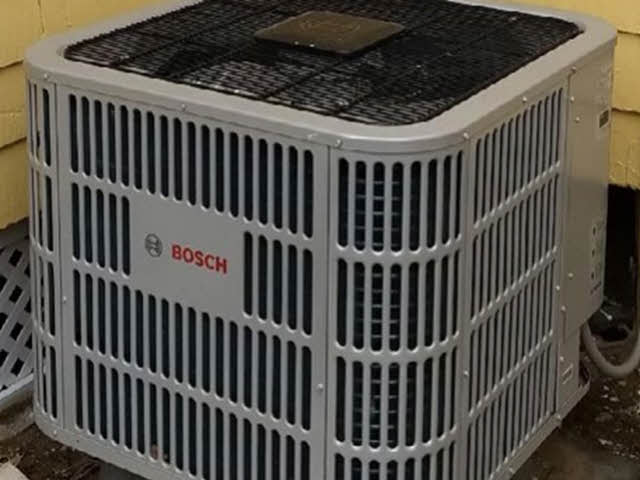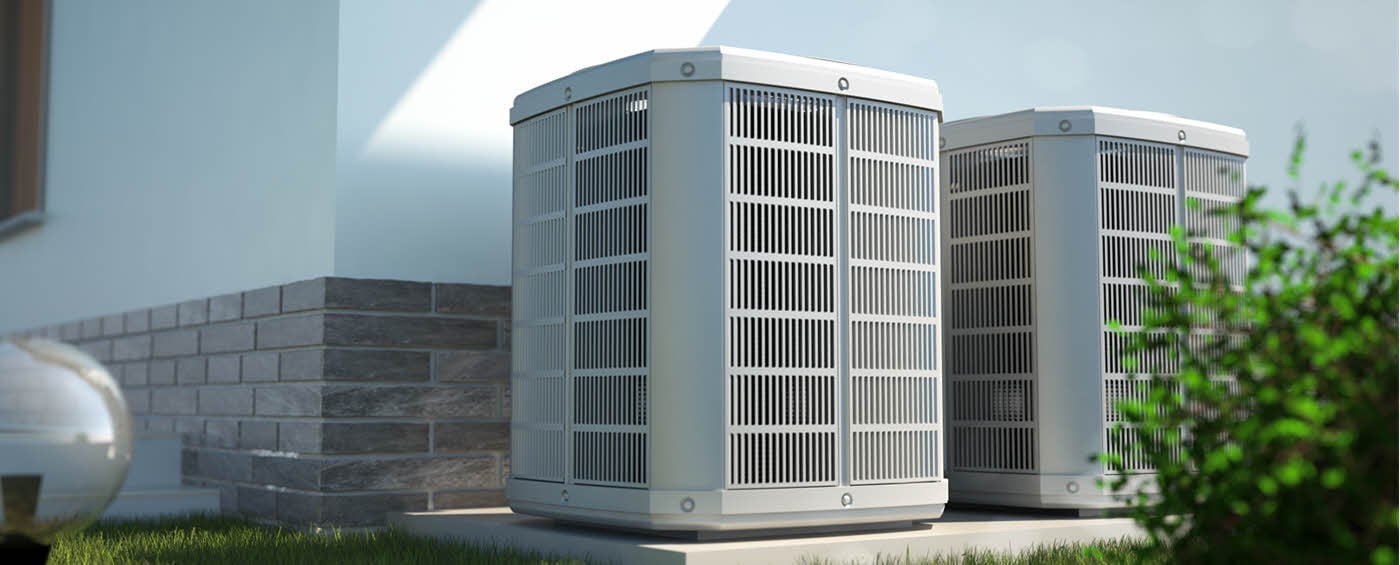Heat pumps can efficiently heat in the winter and double as a cooling system in the summer, while lowering greenhouse gas emissions. Heat pumps are powered by electricity with no in-home fuel storage or carbon emissions.
The Sponsors of Mass Save offer rebates on heat pumps as well as an opportunity to apply for 0% financing.

Air Source Heat Pumps
Air source heat pumps (commonly referred to as mini-splits) extract heat from the air outside and distribute it inside during the winter. During warmer months, this process is reversed to provide cooling.

Air to Water Heat Pumps
Air to water heat pumps use the same concept as an air source heat pump for drawing out heat from the outdoor air. The difference is it delivers the heat via water piped through a home (rather than hot air).

Ground Source Heat Pumps
Ground source heat pumps extract heat from the ground during cold weather and distribute it throughout your home. During warmer months, this process is reversed to provide cooling. This system is the most efficient type of heat pump.
This clean technology offers many benefits:
- Efficient – Today’s cold climate heat pumps are 2-3x as efficient as a boiler or furnace and many provide efficient heat at outdoor temperatures as low as -15 °F
- Cleaner – Heat pumps have the lowest carbon emissions of any heating source. When powered with clean energy sources (wind, solar), heat pumps can have zero carbon emissions
- Safer – There is no in-home fuel storage or carbon monoxide associated with heat pumps
- Affordable to Operate – Heat pumps require minimal maintenance and can eliminate the hassle of scheduling fuel deliveries. For a heating cost comparison, visit the Mass Save Heating Comparison Calculator
- Flexible – Heat pumps can be installed with or without ductwork and can heat and cool either an individual zone or your whole home
- All-in-One Comfort – Heating, cooling and dehumidification are all in one system
Helpful Resources and Considerations:
- Efficiency First: Before upgrading your heating system, consider preliminary measures, such as sealing and insulating your ductwork or completing weatherization work. The Sponsors of Mass Save® offer professional guidance, rebates, and financing that will help you increase your home’s efficiency and prepare for a new heating system. Learn more about preparing your home for a heating system upgrade.
- Electric Usage: A heat pump is an electrical system, so running one will add to your electrical use. In many cases, that additional electrical use is offset by savings elsewhere, such as a propane or oil heating fuel bill. You may also decide that increased comfort is worth an additional energy cost. Of course, if you’re adding a heat pump where there was no cooling source before, it will increase your electric use.
- Qualified Contractors: Please note that each customer situation is unique. The Sponsors of Mass Save® urge you to work closely with a qualified contractor who can design and install a heat pump system that will meet your heating and cooling needs. Be sure to understand installation and operating costs, as well as proper operation and maintenance practices. These steps will help you enjoy the benefits that a properly installed heat pump system can provide. View our list of qualified residential contractors.

Not Sure Where to Start?
Schedule a no-cost, virtual consultation with a Mass Save Decarbonization Specialist for guidance. You can also use our Heating Comparison Calculator to compare the annual costs and savings of different systems.

Case Study: Dick MacDonough
After an existing central air conditioner unit broke down, Dick decided to upgrade to a high-efficiency heat pump and use a smart thermostat—reducing his annual carbon dioxide emissions by 5.1 metric tons.

Case Study: All-Electric Home in Northampton
A new home (3,777 square feet) built in Northampton is only heated with a ductless heat pump system—due to a well-thought-out and implemented plan for air sealing and insulating the home
